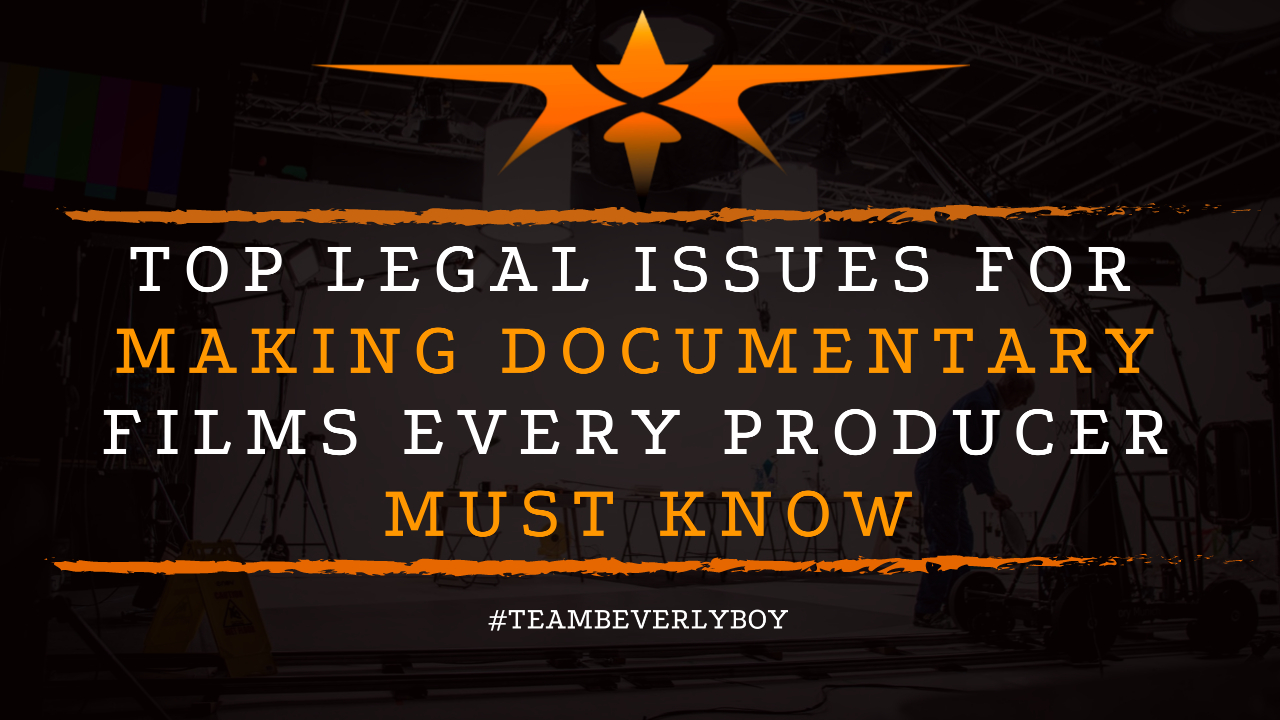
Top Legal Issues for Making Documentary Films Every Producer Must Know
As a filmmaker, the ideas and inspiration you come up with to create a film are almost certainly from another source. In fact, it’s normal for ideas and inspiration for films to come from a variety of outside sources. Including the people you’ve met and connected with in your lifetime, the places you’ve visited, and the brands and businesses you’ve encountered or been involved with. But what happens if your inspiration turns into a defamation lawsuit? Or if you face some other legal issues for making documentary films that you’re unaware of?

Filmmakers face a lot of potential legal issues for documentary films. They must be aware of their rights and responsibilities to the individuals or businesses portrayed in the footage they create.
The best way to protect yourself from potential lawsuits and legal issues for making documentary films is to first be aware of the potential legal challenges that could be brought forth and what they mean.
Breach of Privacy
As a documentary filmmaker, one of the most frequent challenges brought in court is likely to be relative to a breach of privacy.
Although every state is different, failure to respect the privacy of those whom you are producing a documentary about could land you in hot water.
It’s important that you know the rules regarding privacy. As well as the right to film or record things like interactions on camera. Without a contract you could face significant legal burdens when you create a documentary film.
Especially if you don’t have the permission to use the audio or video footage.
Distribution Rights
Every great documentary film producer knows the importance of obtaining distribution rights and other pertinent data prior to the production.
This includes educational rights, digital distribution rights, and various rights for the future of the film.
Protecting these rights while you’re also keeping your originally agreed upon deal with any potential licensors that you might already be working with is important.
Fair Use
Another one of the most common legal issues for making documentary films represents the fair use policy. Many documentary filmmakers misunderstand fair use and what it means or how this particular defense can be brought forth.
One of the most important considerations for a documentarian to respect about fair use is that it is a legal defense. Which means that before fair use can “protect” your rights, a lawsuit must be first brought forth in a civil court of law.
Ideally, you want to keep lawsuits out of the picture, therefore fair use shouldn’t really even come up.
However
Say you fair use is a defense you intend to use in a documentary-related civil lawsuit for copyright infringement. You’ll then have to prove that any copywritten content in your documentary is in “fair use.”
This means that you have expressly used copyrighted material in a transformative purpose to comment upon, criticize or otherwise.
Defamation
Finally, one of the top legal issues for making documentary films is brought forth when a filmmaker produces content that represents (or appears to represent) another individual or business in a manner upon which they deem to be harmful in some way.
When a defamation lawsuit is brought forth, the Plaintiff (individual filing the lawsuit) must prove that:
- The defendant acted in a malicious manner.
- The information is false.
- There was an invasion of privacy.
The Takeaway
As a documentary filmmaker, make sure that you’re aware of these top legal issues for making documentary films. It is an important step toward preventing yourself from facing any potential challenges in court.
As always, you should focus on obtaining proper permissions, and legal instruction, prior to creating any documentary films. And keep in mind that this list is certainly not exhaustive. There are many other potential legal issues which could arise, too.



